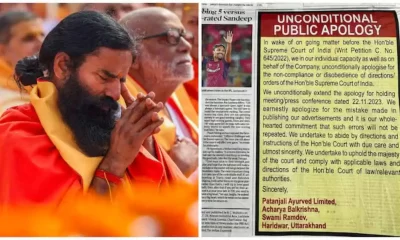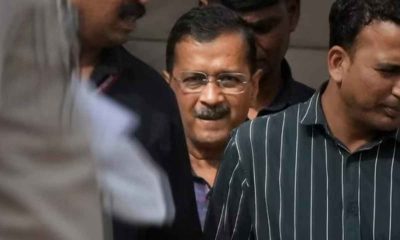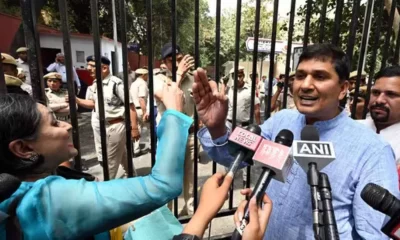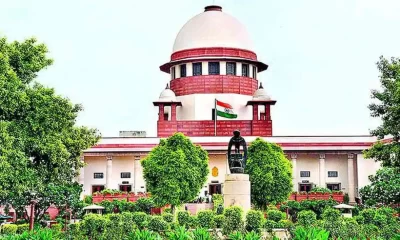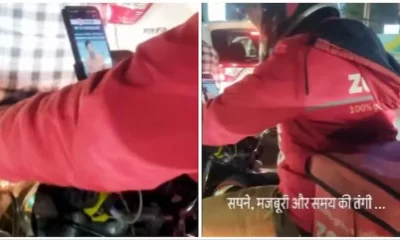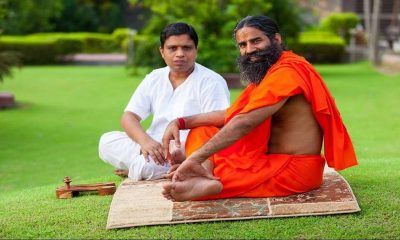India News
Supreme Court rejects plea of five states to appoint DGPs from outside UPSC panel
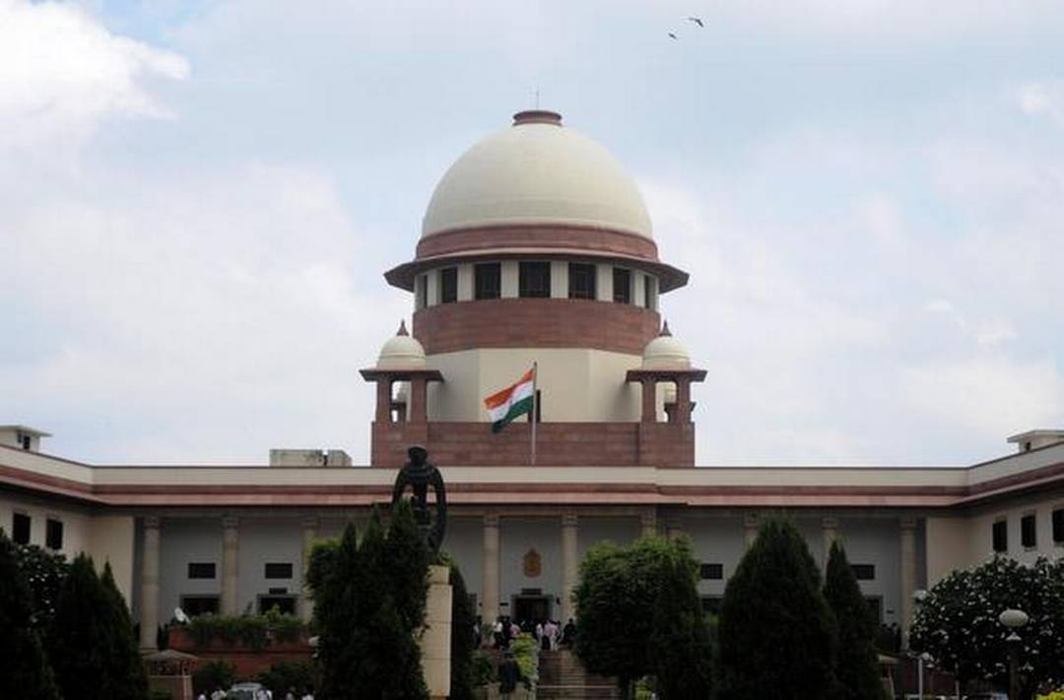
The Supreme Court today (Wednesday, Jan 16) dismissed the pleas of five States to let them appoint police chiefs through an internal state committee rather than from the panel of three recommended by the Union Public Service Commission (UPSC).
The Supreme Court order issued last year on selection and appointment of Director Generals of Police (DGPs) directed States to “ensure that the Director-General of Police (DGP) is appointed through a merit-based transparent process and secure a minimum tenure of two years”.
The apex court was hearing applications of various State governments — Punjab, Kerala, West Bengal, Haryana and Bihar — seeking implementation of their local laws regarding selection and appointment of DGPs.
A Bench headed by Chief Justice of India (CJI) Ranjan Gogoi said that the earlier directions of the court on selection and appointment of DGPs were issued in larger public interest and to protect the police officials from political interference.
On December 12 last year, the apex court extended till January 31 the tenures of the present DGPs of Punjab and Haryana and agreed to hear the states’ pleas seeking to implement their local laws regarding the selection and appointment of the police chief.
DGPs Suresh Arora (Punjab) and BS Sandhu (Haryana) were due to retire on December 31 last year and will now remain in office till January 31 according to the earlier order of the apex court.
Several states were seeking modification of the apex court’s earlier order directing all the states to mandatorily take the assistance of the UPSC in short-listing the names for appointing DGPs.
The top court, on July 3 last year, passed a slew of directions on police reforms in the country and chronicled the steps for appointment of regular DGPs.
It said the states will have to send a list of senior police officers to the UPSC at least three months prior to the retirement of the incumbent.
The UPSC will then prepare a panel and intimate the states, which in turn will immediately appoint one of the persons from that list.
Punjab, Haryana, Bihar, Kerala and West Bengal told the court that they have already framed a comprehensive law, dealing with the procedures to appoint the DGP, in pursuance of the 2006 apex court verdict on police reforms.
The apex court, while deciding the PIL filed by former DGPs Prakash Singh and NK Singh in 2006, issued several directions, including the setting up of a state security commission to ensure the government does not exercise unwarranted influence on the police.
It said the appointment of DGPs and police officers should be merit-based and transparent and officers like DGPs and superintendents of police (SPs) should have a minimum fixed tenure of two years.
However, when states enacted laws providing a mechanism for DGP selection, the apex court on July 3 last year kept the state laws in abeyance.
It earlier passed directions on police reforms and restrained all states and Union Territories from appointing any police officer as acting DGP.
The directions had come on an application filed by the Centre in which it claimed that certain states have been appointing acting DGPs and then making them permanent just before the date of their superannuation to enable them to get the benefit of an additional two-year tenure till the age of 62 years.
The court had also cautioned the states against conceiving of the “idea of appointing any person on the post of DGP on acting basis for there is no concept of acting Director General of Police”.
The apex court, on September 8, 2017, agreed to hear a clutch of pleas observing that its historic 2006 verdict on police reforms, recommending steps like fixed tenures for DGPs and SPs, has not yet been implemented by states and Union territories.
In the 2006 judgment, the Supreme Court said the DGP of the state “shall be selected by the State government from amongst the three senior most officers of the department who have been empanelled for promotion to that rank by the UPSC on the basis of their length of service, very good record and range of experience for heading the police force”. The court also said that once the DGP was selected, he should have a minimum tenure of two years.”
The court also said that the states should send their proposals with regard to the appointment of the next DGP to the UPSC at least three months before the date of retirement of the incumbent.
In its order, the Supreme Court had also laid down the guidelines for the removal of the DGPs saying that a state government may remove a DGP after consultation with the “State Security Commission consequent upon any action taken against him under the All India Services (Discipline and Appeal) Rules” or if the DGP has been convicted in a court of law in a criminal offence or for corruption.
2024 Lok Sabha Elections
Lok Sabha election 2024: Nearly 50% voter turnout recorded in second phase till 3 pm
The constituencies going to polls today include all 20 Lok Sabha seats in Kerala, 14 in Karnataka, 13 in Rajasthan, and others spread across different states.
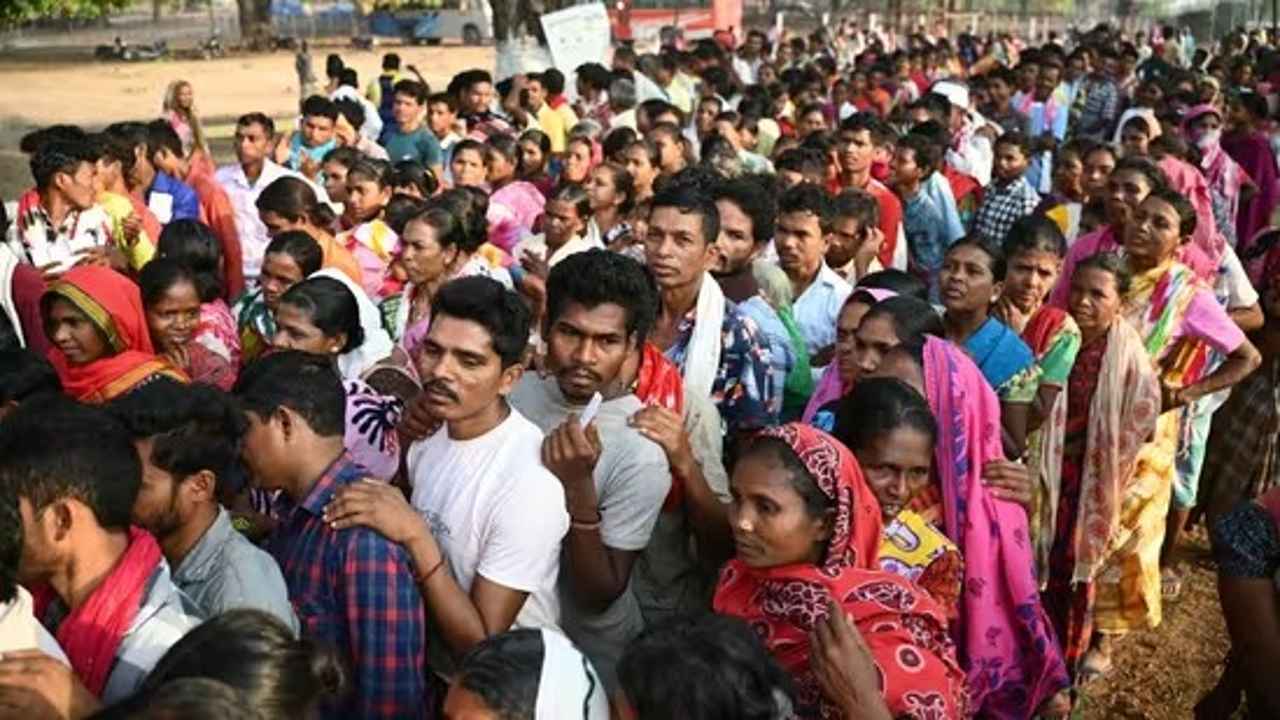
In the second phase of Lok Sabha elections 2024, over 50% of voters were registered in 13 states and the UTs till 3 p.m. 65% of voters participated in the first round of the Lok Sabha elections.
The 18th Lok Sabha elections are currently in their second phase, with voting for 88 seats taking place across 13 states and union territories. There are more than 1,200 people running for office, four of them are from outside Manipur.
Union minister Rajeev Chandrasekhar, BJP members Tejasvi Surya, Hema Malini, and Arun Govil, Rahul Gandhi and Congress leader Shashi Tharoor, DK Suresh, the brother of Karnataka Deputy Chief Minister DK Shivakumar, and former chief minister HD Kumaraswamy are among the notable contenders for the second phase.
In 2019, the NDA had won 56 of the 89 seats and the UPA 24. Six of these seats have been redrawn as part of the delimitation exercise.
The first phase of the seven stages of the elections took place on Friday, including 102 seats spread across 21 states and Union territories. Voter turnout was about 65.5% in the first phase, according to the reports.
In biggest festival of democracy, people from all walks of sector took part in it. A video went viral where former India captain and current Indian team head coach Rahul Dravid and former India player and head coach Anil Kumble were seen standing in line to cast their vote.
Meanwhile, voting started at 7 a.m. and will end at 6 p.m. The Election Commission has extended voting hours for those who are in line by an hour. According to Election Commission figures, the first two hours saw a 9.3% voter turnout throughout the 88 constituencies. By 9 am, Kerala had recorded 8.52%, Karnataka 9.21%, and Madhya Pradesh 13.82%.
In this phase, there were about 15.88 crore eligible voters, comprising 5.929 third-gender electors, 8.08 crore males, and 7.8 crore women. 3.28 crore young voters, aged 20 to 29, are among them; 34.8 lakh of them are first-time voters.
2024 Lok Sabha Elections
Lok Sabha elections 2024: 102-year-old man walks to polling booth to cast his vote in Jammu
The lowest voter turnout so far was noted in Ramgarh at 1.53%.
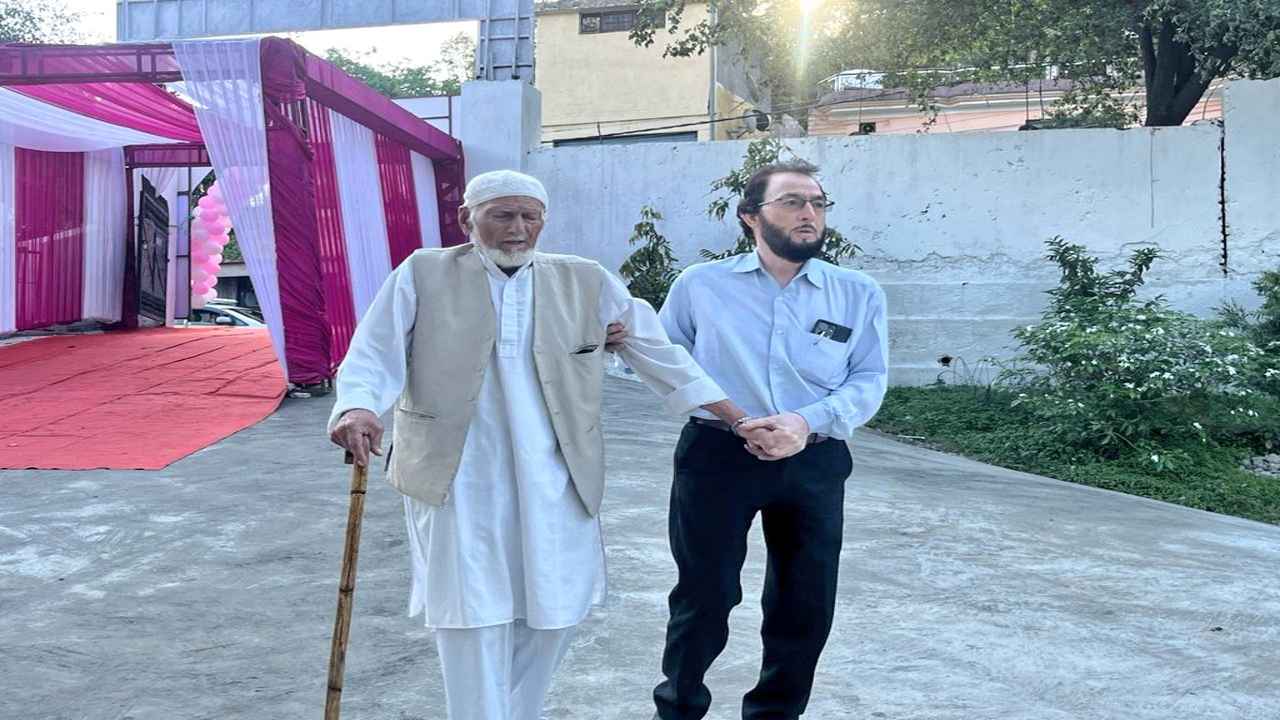
A 102-year-old man showed up at a Jammu polling place to cast his vote in the second phase of the Lok Sabha elections on Friday. Haji Karam Din arrived at the Reasi district polling place in the Jammu constituency with a walking stick in hand and a family member who assisted him with the pre-voting process.
Haji Karam Din, who is 102-year-old, showed his inked finger and posed for pictures outside the polling booth after casting his vote. He said voting at this polling place at this age makes him very happy. He has always cast his vote. Even at the age of 102, this experience is still ongoing, he said.
Reasi district is a part of the Jammu parliamentary constituency, and 22 candidates are up for vote with around 17.81 lakh eligible voters.
BJP’s sitting member Jugal Kishore Sharma is aiming for a third term in office following wins in the elections of 2014 and 2019. Former minister and Congress candidate Raman Bhalla is his main opponent.
Voting in the Jammu-Reasi Lok Sabha constituency began with eager voters showing up at the polling places. Some of them were wearing traditional Dogra attire.
In 2,416 polling places around the constituency, voting got underway at 7 a.m., and 10.39% of the total votes were cast by 9 a.m. In the 2019 Lok Sabha elections, Jammu recorded a 74% voter turnout.
Following the repeal of Article 370 and the division of the former state into two Union Territories five years ago, this is Jammu’s first significant election.
The Akhnoor segment received the highest percentage of votes, 14.24%, followed by Reasi (14.13%), Gulabgarh (13.53%), Shri Mata Vaishnodevi (12.71%), Marh (12.31%), Samba (8.56%), R S Pura Jammu South (8.17%), and Suchetgarh (5.67%), according to the officials. Ramgarh recorded the lowest voter participation of 1.53% so far.
Low attendance was observed in the border areas of the districts of Jammu and Samba till nine in the morning, according to poll data.
The officials said that big lines of voters were observed at several polling places throughout Jammu city. Voters were observed heading towards polling places early in the morning.
India News
Salman Khan house firing case: NIA interrogates arrested shooters Sagar Pal, Vicky Gupta for three hours
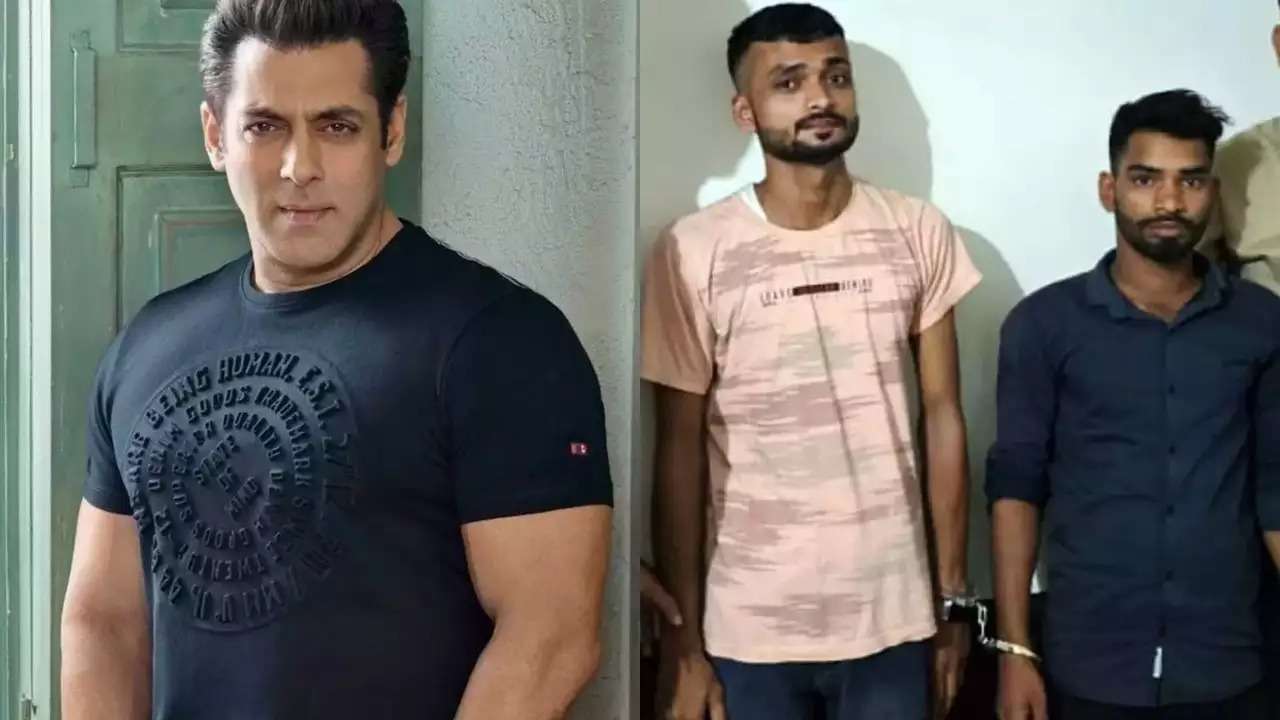
The investigation into the shocking firing incident that took place outside Salman Khan’s house on April 14 keeps bringing new updates with every passing day. In this case, Sagar Pal and Vicky Gupta, the two suspected shooters, have already been taken into custody.
The two shooters have reportedly been questioned by the National Investigation Agency (NIA), according to a new development. Every day that goes by, more information is revealed about the inquiry into the shocking firing incident that happened outside Salman Khan’s house on April 14. Sagar Pal and Vicky Gupta, the two accused shooters, are being held in custody after their first arrests.
It was recently discovered that the two shooters were questioned by the National Investigation Agency (NIA).
NIA has reportedly begun questioning Sagar Pal and Vicky Gupta, who were detained a few days ago for firing openly outside Salman Khan’s Galaxy Apartments in Mumbai, according to a recent update posted on their X (Twitter) account. NIA has interrogated shooters Vicky Gupta and Sagar Pal, arrested in the firing case, the tweet said.
According to the reports, two Punjabi residents were taken into custody by the Mumbai Crime Branch yesterday on suspicion of being involved in the recent shooting incident outside the house of Bollywood actor Salman Khan.
The two men, Sonu Subhash Chander and Anuj Thapan, provided guns to Sagar Pal and Vicky Gupta, the shooters, according to information released by the Mumbai Crime Branch. It was also reported that they had communication with the Bishnoi gang. For those who don’t know, hours after the incident, Anmol Bishnoi, the brother of gangster Lawrence Bishnoi, allegedly took credit for the firing in a Facebook post.
The shooters’ custody has been extended by Mumbai’s Esplanade Court until April 29.
Meanwhile, on the workfront Salman Khan was last seen in Tiger 3 alongside Katrina Kaif.
-
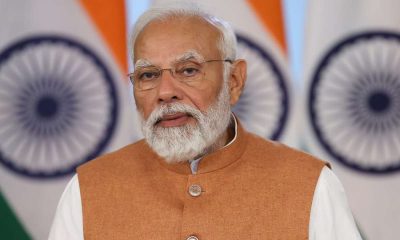
 2024 Lok Sabha Elections19 hours ago
2024 Lok Sabha Elections19 hours agoPM Modi calls for high voter turnout in second phase of Lok Sabha elections 2024, says your vote is your voice
-
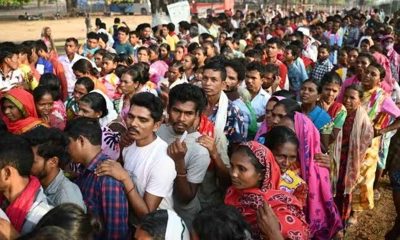
 2024 Lok Sabha Elections13 hours ago
2024 Lok Sabha Elections13 hours agoLok Sabha election 2024: Nearly 50% voter turnout recorded in second phase till 3 pm
-
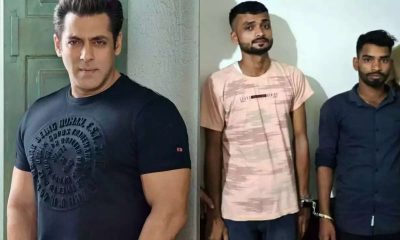
 India News18 hours ago
India News18 hours agoSalman Khan house firing case: NIA interrogates arrested shooters Sagar Pal, Vicky Gupta for three hours
-
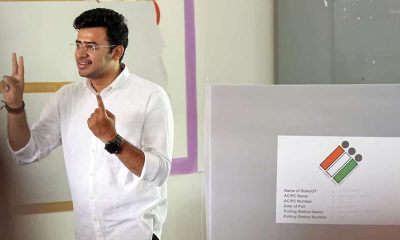
 2024 Lok Sabha Elections12 hours ago
2024 Lok Sabha Elections12 hours agoElection Commission books BJP MP Tejasvi Surya for seeking votes in the name of religion
-
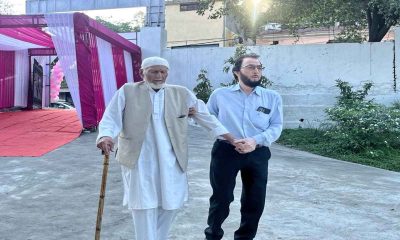
 2024 Lok Sabha Elections16 hours ago
2024 Lok Sabha Elections16 hours agoLok Sabha elections 2024: 102-year-old man walks to polling booth to cast his vote in Jammu

